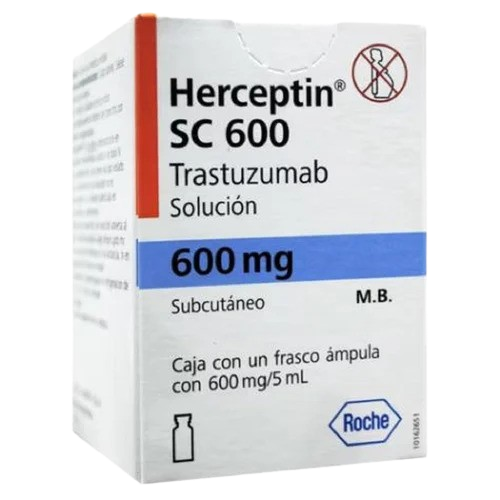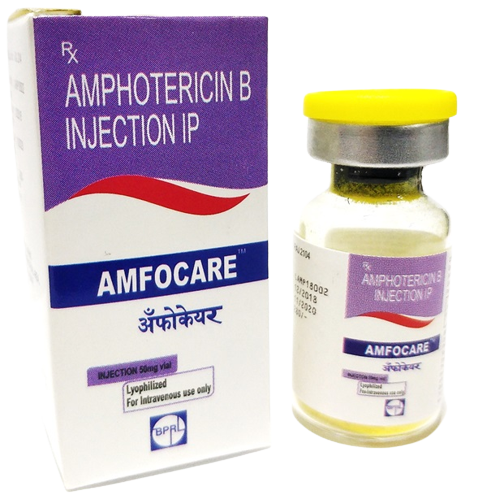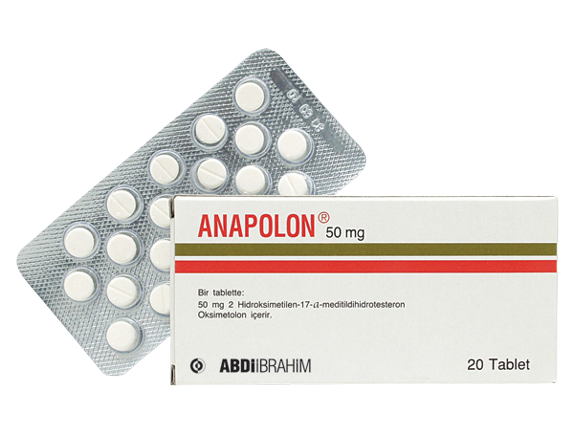Herceptin (Trastuzumab) 600 mg/5 ml Imported Available In Pakistan
Herceptin, known generically as Trastuzumab, is a monoclonal antibody primarily used for treating HER2-positive breast cancer and certain types of gastric cancer. In Pakistan, it is available in a 600 mg/5 ml vial format, which is marketed by Roche Pakistan Pvt Ltd.
Product Details
- Formulation: Injection
- Pack Size: 1 vial (600 mg/5 ml)
- Manufacturer: Roche Pakistan Pvt Ltd
- Generic Category: Antineoplastic Monoclonal Antibodies
- Storage Conditions: Should be stored at 2 – 8°C; do not freeze
Usage
Herceptin can be administered alone or in combination with other chemotherapy medications, targeting the HER2 receptor to inhibit cancer cell growth
Original price was: ₨45,000.00.₨39,999.00Current price is: ₨39,999.00.
Description
Herceptin, known generically as Trastuzumab, is a monoclonal antibody primarily used for treating HER2-positive breast cancer and certain types of gastric cancer. In Pakistan, it is available in a 600 mg/5 ml vial format, which is marketed by Roche Pakistan Pvt Ltd.
Product Details
- Formulation: Injection
- Pack Size: 1 vial (600 mg/5 ml)
- Manufacturer: Roche Pakistan Pvt Ltd
- Generic Category: Antineoplastic Monoclonal Antibodies
- Storage Conditions: Should be stored at 2 – 8°C; do not freeze
Usage
Herceptin can be administered alone or in combination with other chemotherapy medications, targeting the HER2 receptor to inhibit cancer cell growth
Key Benefits
- Targeted Therapy: Herceptin specifically targets the HER2 protein, which is overexpressed in certain types of breast and gastric cancers, inhibiting cancer cell growth and proliferation
- Improved Survival Rates: Clinical studies have shown that Herceptin can significantly improve overall survival rates in patients with HER2-positive breast cancer, both in early-stage and metastatic settings
- Combination Treatment: It can be used alone or in combination with other chemotherapy agents, enhancing the effectiveness of the overall treatment plan for patients
- Adjuvant Therapy: Herceptin is effective as an adjuvant treatment, helping to prevent recurrence in early-stage breast cancer patients
- Treatment for Metastatic Cancer: It is approved for treating metastatic breast cancer and HER2-positive gastric cancers, providing options for patients with advanced disease
Key Ingredients
- Active Ingredient: Trastuzumab, a monoclonal antibody that binds specifically to the HER2 receptor on cancer cells
- Excipients: The formulation may include other ingredients that stabilize the drug for infusion, though specific excipients are not typically disclosed in detail in standard product information.
- Herceptin (trastuzumab) is a targeted therapy used to treat cancers that overexpress the HER2 protein, particularly HER2-positive breast cancer and gastric cancer. Here’s how it works:
Mechanism of Action
- Targeting HER2 Receptors: Herceptin is a monoclonal antibody designed to specifically bind to the HER2 receptors on the surface of cancer cells. In cancers that are HER2-positive, these receptors are overexpressed, leading to increased cell proliferation and survival signals
- Blocking Growth Signals: By binding to the HER2 receptor, Herceptin effectively blocks the signals that promote cell division and growth. This action helps to slow down or stop the growth of the cancer cells
- Inducing Immune Response: Once Herceptin is attached to the HER2 receptors, it flags the cancer cells for destruction by the immune system through a process known as antibody-dependent cellular cytotoxicity (ADCC). This mechanism activates immune cells, such as natural killer cells, to target and kill the marked cancer cells
- Preventing HER2 Shedding: Herceptin also prevents the shedding of the extracellular domain of HER2, which can be associated with poor prognosis in patients with advanced breast cancer. By maintaining HER2 on the cell surface, Herceptin helps enhance its therapeutic effects
Clinical Applications
Herceptin is used in various settings:
- Adjuvant Therapy: It is administered after surgery to reduce the risk of recurrence in patients with early-stage HER2-positive breast cancer
- Metastatic Cancer Treatment: It is effective as a first-line treatment for metastatic breast cancer and can be combined with chemotherapy agents like paclitaxel or used alone in previously treated patients

-
Key Precautions
- Cardiovascular Monitoring: Herceptin can increase the risk of heart-related complications, particularly in patients with pre-existing heart conditions. Regular monitoring of heart function is essential during treatment
- Pregnancy and Breastfeeding: Herceptin is not recommended for use during pregnancy or breastfeeding due to potential harm to the fetus or infant. Women of childbearing potential should use effective contraception during treatment and for at least 7 months after the last dose
- Tumor Lysis Syndrome: Patients with bulky metastases may be at risk for tumor lysis syndrome, a potentially life-threatening condition. Close clinical monitoring is necessary
- Allergic Reactions: Patients should be monitored for signs of allergic reactions during and after infusion, as these can occur
- Drug Interactions: Inform healthcare providers about all medications, supplements, and herbal products being taken, as certain drugs (especially anthracyclines) can interact with Herceptin and increase the risk of heart problems
Dietary Restrictions
- Avoid High-Fat Foods: Diets high in saturated and trans fats may promote the growth of HER2-positive cancer cells. It’s advisable to limit these types of fats in the diet
- Hydration and Nutrition: Maintaining hydration and a balanced diet is crucial. Patients are encouraged to consume small, frequent meals to manage side effects like nausea
- Alcohol Consumption: The interaction between alcohol and Herceptin is not well established; however, it’s advisable to consult a doctor regarding alcohol consumption during treatment
- Specific Foods: While no specific foods have been definitively linked to enhancing or inhibiting Herceptin’s effectiveness, incorporating antioxidant-rich foods like citrus fruits may be beneficial. Foods that are high in antioxidants can help support overall health during treatment
-
Foods to Avoid
- Sugary Foods: High sugar intake can promote inflammation and may accelerate cancer cell growth. This includes:
- Sodas
- Fruit juices
- Baked goods with added sugars
- Candy and desserts
- Refined Carbohydrates: These can spike blood sugar levels and contribute to inflammation. Examples include:
- White bread
- White rice
- Pasta made from refined flour
- Saturated and Trans Fats: Diets high in these fats can increase LDL cholesterol, potentially facilitating cancer cell growth. Foods to avoid include:
- Fried foods
- Processed snacks (chips, cookies)
- Margarine and shortening
- Packaged baked goods
- Alcohol: Alcohol consumption can have a hormonal effect that may promote cancer growth, particularly in HER2-positive breast cancer patients.
- High Copper Foods: Foods high in copper, such as liver and shellfish, should be limited, as excess copper may promote cancer progression.
- Processed Meats: These are often high in saturated fats and preservatives, which have been linked to increased cancer risk.
- Foods with High Cadmium Content: Certain dried fruits and some types of seafood may contain cadmium, which can be harmful.
- Unwashed Fruits and Vegetables: Due to the risk of foodborne illnesses, it’s crucial to wash all produce thoroughly.
General Dietary Recommendations
In addition to avoiding specific foods, maintaining a balanced diet rich in whole foods, lean proteins, healthy fats, and plenty of fruits and vegetables is advisable. Incorporating foods that are high in antioxidants and anti-inflammatory properties may also be beneficial during treatment
- Sugary Foods: High sugar intake can promote inflammation and may accelerate cancer cell growth. This includes:
-
Use During Pregnancy
- Risks to the Fetus: Herceptin has been associated with serious fetal complications, including oligohydramnios (low amniotic fluid), which can lead to pulmonary hypoplasia, skeletal abnormalities, and even neonatal death. Studies indicate that this drug can harm a developing fetus, particularly if administered during the second or third trimester
- Pregnancy Category: The drug is classified as a category D medication by the Australian Therapeutic Goods Administration (TGA), indicating that it has caused harm to the fetus in human studies. The U.S. FDA has not assigned a specific pregnancy category but emphasizes the risks involved
- Contraceptive Measures: Women of reproductive potential are advised to use effective contraception during treatment and for at least 7 months after the last dose of Herceptin to prevent pregnancy
- Monitoring: If a patient becomes pregnant while on Herceptin or within 7 months after stopping treatment, close monitoring is essential due to the increased risk of complications
Use During Breastfeeding
- Excretion in Milk: It is unknown whether trastuzumab is excreted in human breast milk, but it has been shown to be present in animal milk. Given the potential for adverse effects on a nursing infant, breastfeeding is generally not recommended during treatment
- Duration of Avoidance: Women are advised to avoid breastfeeding during Herceptin therapy and for at least 7 months after the last dose to ensure that any residual drug does not affect the infant
-
Dosage
Herceptin is administered via intravenous infusion, with dosages varying based on the type of cancer and treatment regimen:
- Initial Loading Dose:
- For HER2-positive breast cancer: 4 mg/kg given over 90 minutes.
- For HER2-positive metastatic gastric cancer: 8 mg/kg given over 90 minutes.
- Maintenance Dose:
- For HER2-positive breast cancer: After the loading dose, a maintenance dose of 2 mg/kg is given weekly over 30 minutes or 6 mg/kg every three weeks.
- For HER2-positive metastatic gastric cancer: After the loading dose, a maintenance dose of 6 mg/kg is given every three weeks.
The total duration of treatment typically lasts for about one year, depending on individual response and clinical guidelines
Storage
Herceptin should be stored under specific conditions to maintain its efficacy:
- Temperature: Store in a refrigerator at 2°C to 8°C (36°F to 46°F). Do not freeze.
- Preparation: Once reconstituted, Herceptin should be used immediately or can be stored in the refrigerator for up to 24 hours. It should not be shaken but gently swirled to mix.
Reviews
Patient reviews and experiences with Herceptin can vary widely based on individual responses to treatment. Common themes in reviews include:
- Effectiveness: Many patients report positive outcomes, with significant tumor reduction and improved survival rates in HER2-positive cancers.
- Side Effects: Some patients experience side effects such as infusion reactions, nausea, fatigue, and potential heart issues, which require monitoring during treatment.
- Quality of Life: While some patients report manageable side effects, others note that the impact on daily life can vary depending on individual health status and concurrent treatments.
- Initial Loading Dose:








Reviews
There are no reviews yet.